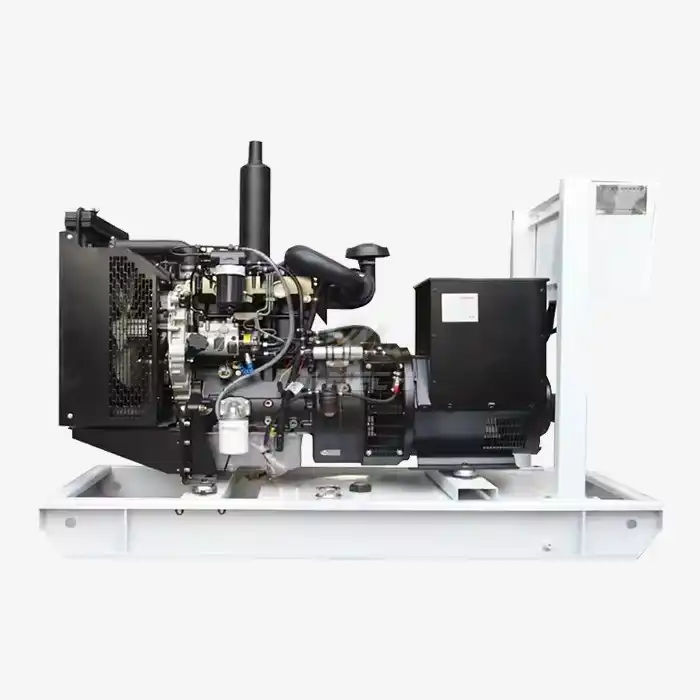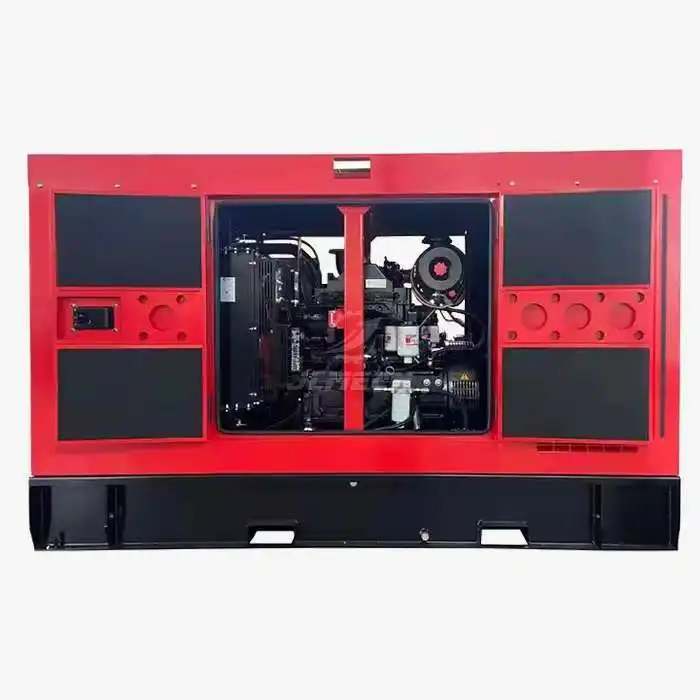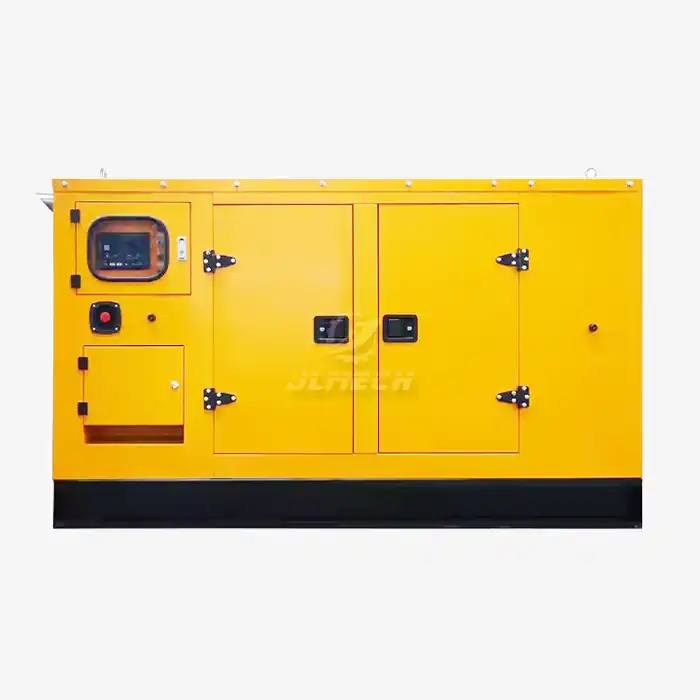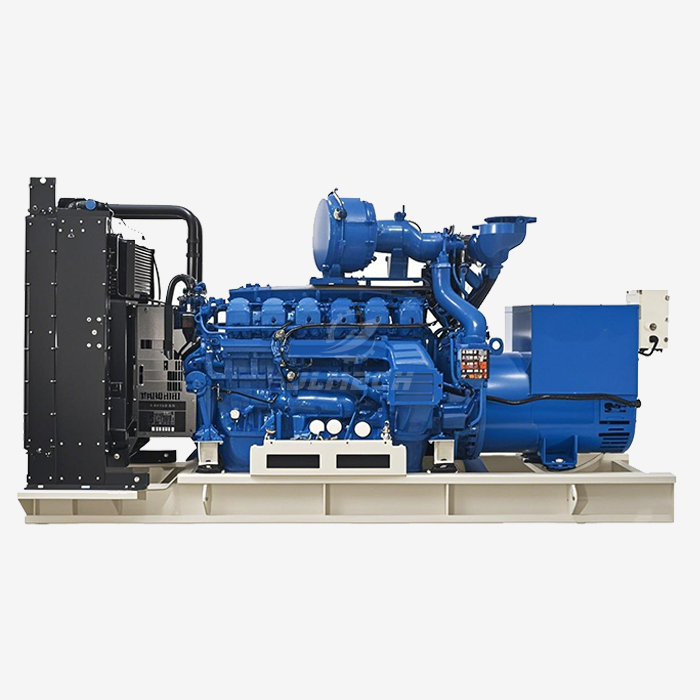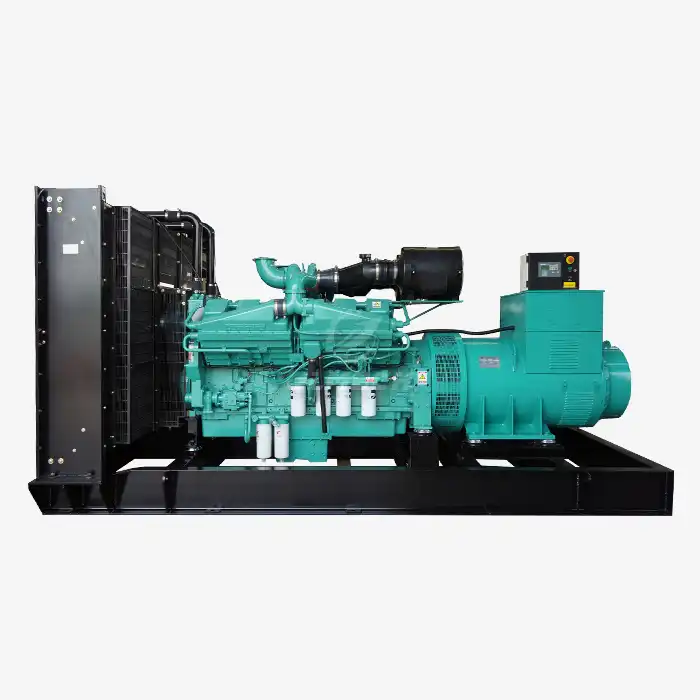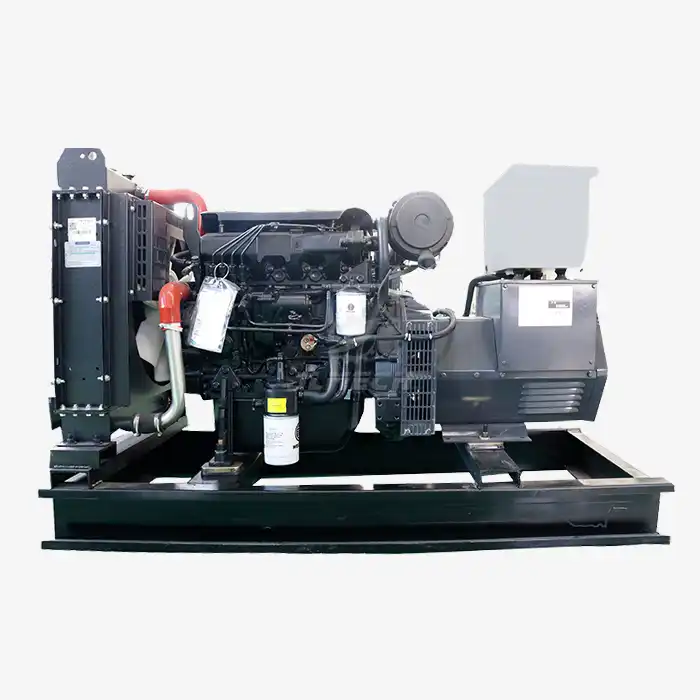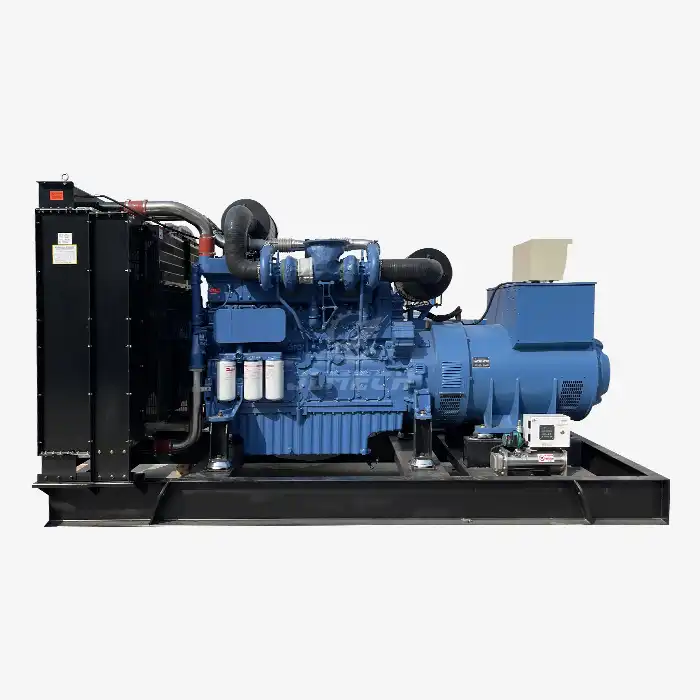Why is my generator consuming so much fuel?
Noticing a sudden increase in your generator's fuel consumption can be alarming, especially when it directly impacts your operational costs. This issue typically indicates either developing mechanical problems or that you may have initially selected a generator not designed for fuel efficiency. Understanding the root causes of excessive fuel consumption is the first step toward implementing effective solutions and potentially upgrading to a true fuel efficient generator that better matches your operational requirements. The following analysis will help you identify specific issues and provide actionable solutions to restore optimal fuel economy.
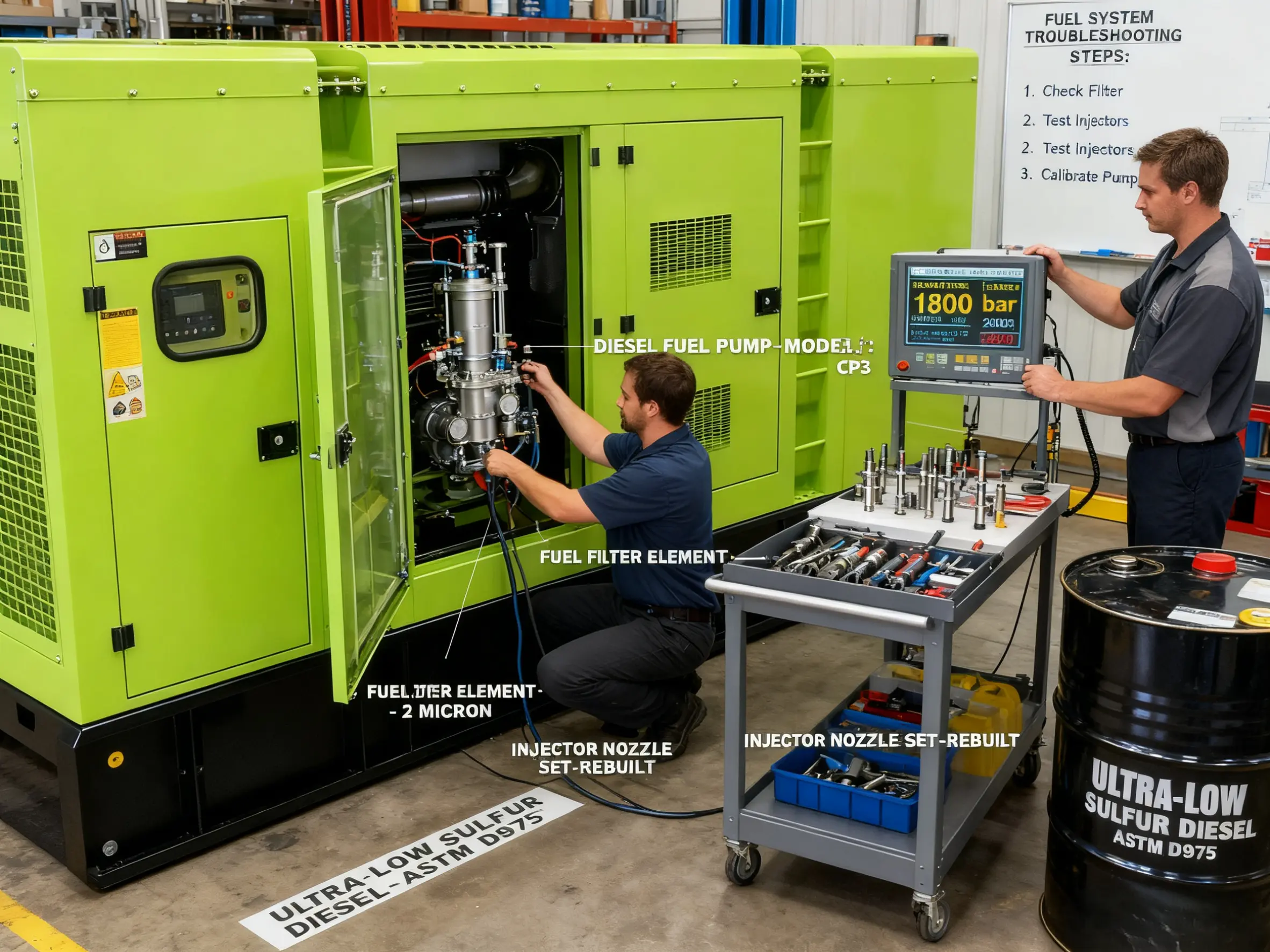
Common Causes of Abnormal Fuel Consumption
Excessive fuel usage generally stems from several identifiable factors:
Mechanical Issues:
Worn fuel injectors causing poor spray patterns and incomplete combustion
Clogged air filters restricting airflow and creating rich fuel mixtures
Incorrect injection timing leading to inefficient combustion cycles
Low compression reducing combustion efficiency and power output
Operational Factors:
Consistently operating outside the optimal load range (below 50% or above 90%)
Rapid load fluctuations causing the engine to run rich temporarily
Improper governor adjustment leading to excessive fuel delivery
Operating in extreme temperatures without appropriate derating
Maintenance-Related Causes:
Dirty fuel filters restricting flow and causing system strain
Old engine oil increasing friction and reducing mechanical efficiency
Coolant system issues causing overheating and rich fuel mixtures
Lack of regular tuning and calibration services
External Factors:
Poor fuel quality with low cetane rating or contamination
High altitude operation without appropriate adjustments
Extreme ambient temperatures affecting air density
Incorrect fuel viscosity for current weather conditions
Diagnostic Methods and Procedures
Systematic diagnosis helps pinpoint the exact cause of high fuel consumption:
Visual Inspection:
Check for visible fuel leaks at connections, filters, and injectors
Examine air filters for clogging and intake systems for restrictions
Look for black smoke indicating incomplete combustion
Verify proper operation of cooling system components
Performance Testing:
Measure actual fuel consumption against manufacturer specifications
Conduct cylinder balance tests to identify weak cylinders
Perform compression tests to assess engine mechanical condition
Analyze exhaust smoke patterns under different load conditions
Advanced Diagnostics:
Use electronic diagnostics to check fuel injection parameters
Perform fuel injection pressure tests to verify pump performance
Conduct exhaust gas analysis to evaluate combustion efficiency
Utilize thermal imaging to identify cooling system issues
Implementing these diagnostic steps will reveal whether your current equipment can be optimized or if you need to consider a true fuel efficient generator designed with modern combustion technology.
Specific Problems and Corresponding Solutions
Matching symptoms with targeted solutions ensures effective problem resolution:
| Problem Symptom | Possible Cause | Recommended Solution |
|---|---|---|
| Black smoke under load | Clogged air filter, faulty injectors | Replace air filter, test and clean injectors |
| Gradual fuel increase over time | Normal engine wear, calibration drift | Engine tune-up, injection timing adjustment |
| Sudden fuel consumption jump | Injector failure, air restriction | Injector replacement, intake system inspection |
| High consumption at low loads | Operating below optimal range | Load management, generator sizing review |
| Excessive consumption in cold weather | Incorrect fuel viscosity, warm-up issues | Use winter blend fuel, check glow plugs |
Preventive Measures and Best Practices
Proactive maintenance prevents most fuel consumption issues:
Scheduled Maintenance:
Regular fuel filter replacement according to operating hours
Air filter inspection and replacement based on environment
Periodic fuel injection system testing and calibration
Routine oil changes with manufacturer-recommended lubricants
Operational Best Practices:
Maintain optimal load levels between 70-80% of capacity
Implement gradual load application rather than sudden demands
Use fuel stabilizers during storage periods
Monitor fuel quality and source from reputable suppliers
Monitoring Systems:
Install fuel consumption monitoring equipment
Use load banks for periodic performance verification
Implement remote monitoring for early problem detection
Maintain detailed maintenance and consumption records
Adopting these practices will optimize your current equipment while helping you recognize when upgrading to a modern fuel efficient generator represents the most cost-effective long-term solution.
Common Misconceptions Clarified
Addressing misunderstandings prevents wasted effort and expense:
Myth 1: "All generators have similar fuel efficiency"
Reality: Modern generators can be 20-30% more efficient than older models due to advanced engine management systems.
Myth 2: "Running generators lightly saves fuel"
Reality: Generators operate most efficiently at 70-80% load; light loading increases specific fuel consumption.
Myth 3: "Fuel additives always improve efficiency"
Reality: While some additives help, they cannot compensate for mechanical problems or poor operational practices.
Myth 4: "All fuel types perform equally"
Reality: Fuel quality varies significantly, and using inappropriate fuel for conditions drastically affects consumption.
Understanding these realities helps focus efforts on genuine solutions rather than ineffective quick fixes, potentially leading to the conclusion that investing in a properly specified fuel efficient generator provides the most substantial long-term savings.
Conclusion
Excessive fuel consumption typically results from identifiable and correctable issues, though sometimes it indicates fundamental equipment mismatch. Systematic diagnosis and proper maintenance resolve most problems, but persistent high consumption may signal the need for equipment upgrading. Modern generators incorporating advanced fuel management technology can reduce consumption by 20-30% compared to older models, representing significant operational savings over time.
Our technical team specializes in diagnosing fuel consumption issues and recommending appropriate solutions, whether through repair optimization or equipment replacement. Contact us at skala@whjlmech.com for professional assessment and generator recommendations tailored to your specific operational needs and efficiency requirements.
References
International Organization for Standardization. (2023). ISO 8528: Reciprocating internal combustion engine driven generating sets. Geneva: ISO.
Diesel Technology Forum. (2023). Best Practices for Diesel Generator Fuel Efficiency. Maryland: DTF.
Power Engineering Society. (2023). Generator Performance Optimization and Maintenance Guide. New York: IEEE.
Johnson, M. (2022). Emergency Power Systems: A Comprehensive Guide to High-Speed Diesel Generators. Power Engineering Quarterly, 45(3), 78-92.




